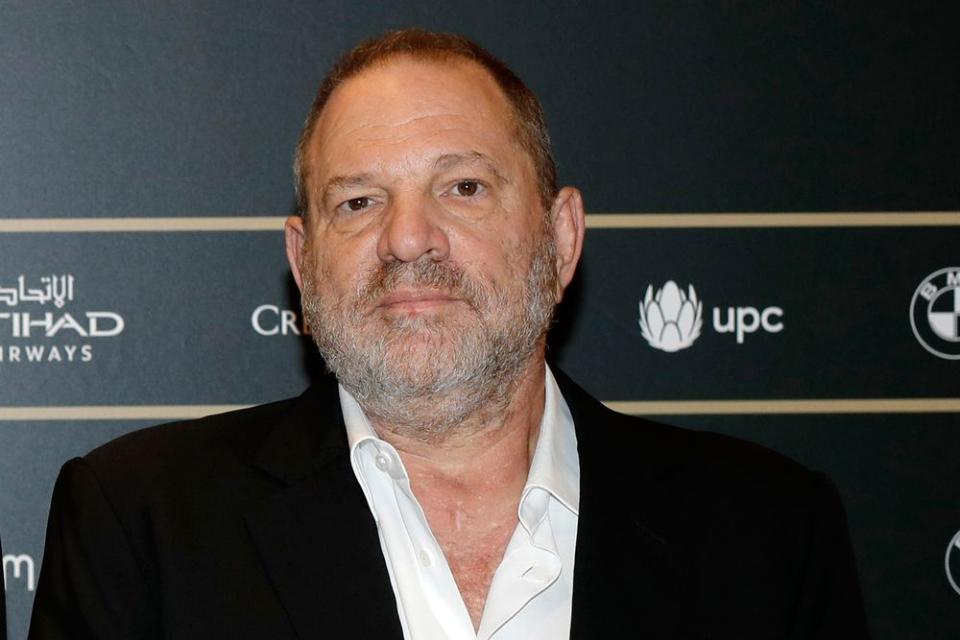Harvey Weinstein's Alleged Victims 'Need Support,' Says U.K. Lawyer Slamming Bankruptcy Filing
A lawyer pursuing civil claims against Harvey Weinstein says a “growing” number of alleged victims are seeking their day in court — and she’s criticizing The Weinstein Company’s bankruptcy filing for potentially endangering their chances of a settlement.
Jill Greenfield of Field Fisher represents several women who claim the disgraced movie mogul sexually assaulted them and is currently litigating against both Weinstein and his former studio, The Weinstein Company, in the U.K.
“I have got a number of clients and the group is growing,” Greenfield tells PEOPLE. “The number of people that I am talking to who really need some psychiatric support and some proper treatment and therapy, it’s just extraordinary. People now are living through things that they haven’t talked about for many, many years.” (Harvey Weinstein has denied all allegations of nonconsensual sex and retaliation against any women.)

On Monday, The Weinstein Company filed for bankruptcy. and stated that an affiliate of the Dallas-based private equity firm Lantern Capital Partners had bid to buy the company. It also announced that any victims of or witnesses to Harvey Weinstein’s alleged sexual misconduct would be released from their non-disclosure agreements.
“They have filed for bankruptcy, which is basically a protected sale mechanism,” says Greenfield. “What they have not said is that they are going to be ring-fencing [preserving] some of those funds for the victims.”
“Unless they ring-fence some funds, the victims are the ones who could actually suffer the most out of all of this.”
Greenfeld says her clients “have been through tremendous psychiatric trauma regarding the various allegations that have been made while they were working with Harvey Weinstein. They are reliving this all now, they are watching this all unfolding and now the company has gone bankrupt. What are they meant to think?”
When a company files for bankruptcy, bankruptcy law “sets forth an order of priority” for how payments to creditors are allocated, legal expert Leslie Cohen, who is not affiliated with The Weinstein Company bankruptcy, tells PEOPLE. Unsecured creditors, which include anyone who might have a lawsuit claim against the company, are paid last, after specific debts, employee wages, taxes and other debts.
Cohen adds, “The litigation creditors’ claims haven’t been determined yet. So the open question will be whether the court will set up some procedure for that, or whether they will each be able to get their claims decided in a state court. None of that has been decided yet.”
Meanwhile, Cohen speculates that The Weinstein Company may “set up a fund for litigation creditors.” This decision is up to the company. “Hopefully The Weinstein Company will figure it out and will negotiate with creditors.”
RELATED VIDEO: N.Y. Governor Calls for Investigation Into N.Y.C. DA Who Didn’t Prosecute Harvey Weinstein
Greenfield calls the NDA move an attempt to “put a positive spin on going bankrupt. What’s really important is what steps the company is going to take to ensure that the alleged victims are supported.”
“The victims could end up with absolutely nothing unless they agree that one of their proposals in the bankruptcy is to ensure that these victims are protected. It’s up to them to be doing that now and it’s up to politicians and the media to put pressure on them to do that.”
Kaveh Navab, a lawyer who specializes in non-disclosure agreements and is not affiliated with The Weinstein Company’s bankruptcy, noted that preemptively voiding the NDAs “save everyone the legal battles and legal costs.”
According to the bankruptcy filing, The Weinstein Company owes millions of dollars to creditors such as film distributors and law firms, and also owes money to actors including Judi Dench and Jennifer Lawrence — as well as to Malia Obama, who worked there as an intern before the scandal.

